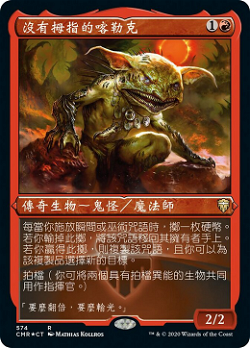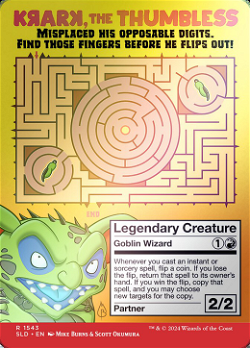规则
10/11/20
An effect that checks whether you control your commander is satisfied if you control one or both of your two commanders.
10/11/20
Both commanders start in the command zone, and the remaining 98 cards (or 58 cards in a Commander Draft game) of your deck are shuffled to become your library.
10/11/20
If the spell has damage divided as it was cast (like Monstrous Onslaught), the division can’t be changed, although the targets receiving that damage still can. The same is true of spells that distribute counters.
10/11/20
If the spell that’s copied is modal (that is, it has a bulleted list of modes), the copy will have the same mode or modes. You can’t choose different ones.
10/11/20
If you cast a copy of an instant or sorcery card (for example, one created by Mnemonic Deluge), and the spell is returned to its owner’s hand, it will cease to exist. You won’t be able to cast it again.
10/11/20
If you lose the flip and the spell is returned to its owner’s hand, it’s removed from the stack and won’t resolve. This isn’t the same as countering the spell, and a spell that can’t be countered can be returned to hand.
10/11/20
If you lose the flip, but the spell that caused Krark’s triggered ability to trigger isn’t on the stack anymore (most likely because it was countered), nothing is returned to your hand. The card stays in its current zone.
10/11/20
If you win the flip, the spell will be copied even if it doesn’t require targets.
10/11/20
Once the game begins, your two commanders are tracked separately. If you cast one, you won’t have to pay an additional the first time you cast the other. A player loses the game after having been dealt 21 damage from any one of them, not from both of them combined.
10/11/20
The copy from winning the flip is created on the stack, so it’s not “cast.” Abilities that trigger when a player casts a spell won’t trigger.








— 评论0
成为第一个发表评论的人